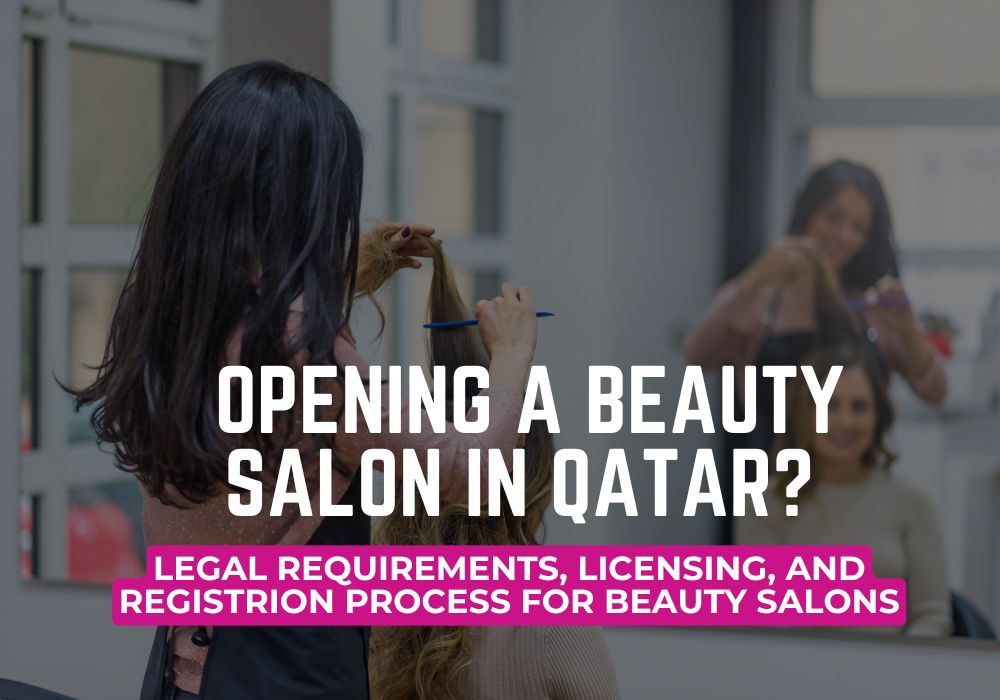Are you looking to establish or operate a beauty salon in Qatar? Understanding the legal requirements for beauty salons in Qatar is crucial for smooth operations and compliance with the law. From licensing and registration processes to compliance with health and safety regulations, beauty salon owners need to navigate various legal aspects to ensure their business runs smoothly and within the confines of the law.
In Qatar, beauty salons must adhere to specific laws and regulations to operate legally. This includes obtaining the necessary licensing and registration, ensuring compliance with health and safety regulations, and understanding employment laws that govern beauty salon staff.
Maintaining compliance with legal requirements is essential for the seamless operation of your beauty salon in Qatar. This involves staying updated on inspection and renewal requirements, understanding import regulations for beauty products, and being aware of the penalties for non-compliance and how to avoid them.
By adhering to legal requirements for beauty salons in Qatar, you can protect your business, employees, and customers while ensuring a thriving and compliant operation. Stay informed, stay compliant, and run your beauty salon with confidence in the Qatari market.
Overview of Beauty Salon Legal Requirements in Qatar
Operating a beauty salon in Qatar requires adherence to various legal requirements to ensure compliance with regulations and standards. Understanding these legal obligations is crucial for salon owners to run their businesses smoothly and avoid penalties.
A. Licensing and Registration Process for Beauty Salons
- Beauty salons in Qatar need to obtain the necessary licenses and registrations from the relevant authorities before commencing operations.
- The process involves submitting detailed documentation, such as business permits, proof of ownership, and compliance certificates.
- Salon owners must ensure that their establishments meet the specific criteria set by the licensing bodies to obtain approval.
B. Compliance with Health and Safety Regulations
- Beauty salons must adhere to strict health and safety regulations to protect the well-being of customers and staff.
- This includes maintaining cleanliness, sterilizing equipment, and using safe and approved products.
- Regular inspections may be conducted to ensure compliance with these standards.
C. Employment Laws and Regulations for Beauty Salon Staff
- Salon owners are required to comply with employment laws governing the hiring and treatment of staff members.
- This includes adhering to wage regulations, providing appropriate working conditions, and ensuring employee rights are respected.
- Staff should be provided with proper contracts outlining their roles, responsibilities, and benefits.
Contact Us for Hassle-Free Beauty Salon Business Setup in Qatar

Key Considerations for Maintaining Compliance
Ensuring that your beauty salon in Qatar remains compliant with legal requirements is essential for the smooth operation of your business. Here are some key considerations to keep in mind:
A. Inspection and Renewal Requirements
- Beauty salons in Qatar are subject to regular inspections by authorities to ensure that they meet the necessary standards for operation.
- It is important to be aware of the inspection schedules and requirements to avoid any surprises during inspections.
- Renewal of licenses and permits is typically required annually or biennially, and failure to renew on time can lead to penalties or even closure of the salon.
- Keeping track of renewal dates and starting the renewal process well in advance is crucial to avoid any disruptions to your business.
B. Import Regulations for Beauty Products
- Beauty salons in Qatar must adhere to strict regulations when importing beauty products for use in their services.
- It is important to ensure that the products you import comply with the country’s regulations and do not contain any banned or harmful substances.
- Working with reputable suppliers and being aware of the import process can help you avoid any issues with customs or authorities.
- Keeping detailed records of all imported products and their ingredients is also essential for compliance and transparency.
C. Penalties for Non-Compliance and How to Avoid Them
- Non-compliance with legal requirements can lead to hefty fines, closure of the salon, or even legal action against the business owner.
- Being aware of the specific penalties for violations of licensing, health, safety, and employment laws is crucial for avoiding costly mistakes.
- Regular training and education of staff on legal requirements and best practices can help prevent compliance issues within the salon.
- Working with legal consultants or advisors specializing in beauty salon regulations can provide valuable guidance and support in ensuring compliance.
Conclusion
Understanding the legal requirements for beauty salons in Qatar is crucial for operating a successful business. This includes obtaining necessary licensing, adhering to health and safety regulations, and adhering to employment laws. Maintaining compliance involves staying updated with inspection and renewal requirements, understanding import regulations, and being aware of potential penalties. Non-compliance can lead to fines, business closure, and damage to the salon’s reputation.
By adhering to these guidelines, beauty salon owners can create a safe environment for clients and employees, safeguard investments, protect staff, and contribute to the thriving beauty industry in Qatar.
Contact Us for Hassle-Free Beauty Salon Business Setup in Qatar






